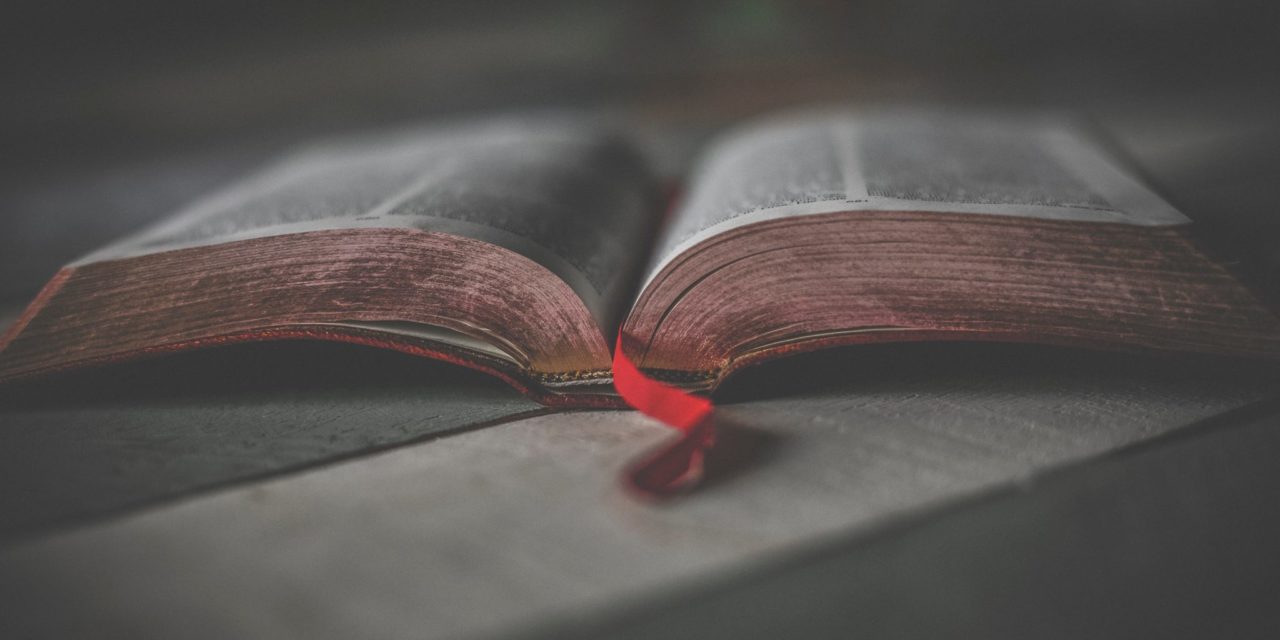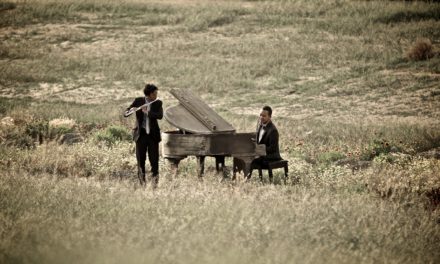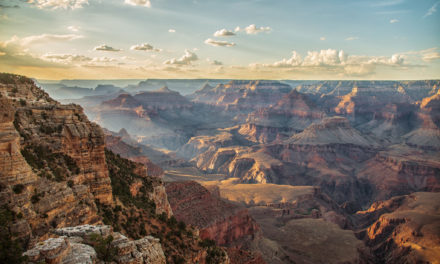Yet even now, says the LORD, return to me with all your heart, with fasting, with weeping, and with mourning; rend your hearts and not your clothing. Return to the LORD, your God, for he is gracious and merciful, slow to anger, and abounding in steadfast love, and relents from punishing. Who knows whether he will not turn and relent, and leave a blessing behind him, a grain offering and a drink offering for the LORD, your God? Blow the trumpet in Zion; sanctify a fast; call a solemn assembly;
~ Joel 2: 12-15
Exegetical Reflection
While today’s pandemic is created by an army of invisible viruses, the threat that the people in Joel’s time in Judah were facing consisted of a visible army of huge swarms of locusts that descended upon the land. Hundreds of millions of these animals were devastating the fields and laying waste to the crops in the storage facilities. Some have estimated that a swarm covering one square kilometer can eat as much food in a day as 35,000 humans. And there is nothing that can stop them! The prophet describes the utter destruction that these animals are able to inflict: “Before them the land is like the garden of Eden, behind them, a desert waste –
nothing escapes them” (2:3). Joel likens the descending swarms of locusts to the appearance of a hostile army that approaches on the back of horses; no one is able to stop them.
Judah is being devastated by a locust plague that is so severe, no one living at the time could remember anything worse. You could only helplessly watch your livelihood disappear right in front of your eyes. And to make things worse, the prophet insists that this is God’s doing; the devastating swarms of locusts are but a mere foretaste of the even more horrifying “Day of the Lord” (1:15).
In response to the disaster, Joel urges Judah to repent with fasting, weeping, and mourning; while these are outward marks of repentance (including the eye-catching “rending of garments”), the prophet also urges to express an inward attitude of remorse that aligns with outward expressions.
Joel admonishes Judah to repent and leave the space of self-centeredness; he invites to enter the realm of God’s grace and mercy: “Who knows? He may turn and relent and leave behind a blessing” (2:14).
And then, the prophet does something that is unexpected: he invites Judah to worship: “Call a sacred assembly” (2:15)! While other prophet colleagues point out the shortcomings of the people and name their sins, Joel invites them to repent and worship. The prophet believes that there is a connection between genuine repentance and the experience of coming together in worship – a link between “rending your heart” and “gathering the people” (Rolf Jacobson).
What enables the prophet to open up this perspective in the midst of despair and hopelessness? He expresses his conviction: “Return to the Lord your God, for he is gracious and compassionate, slow to anger and abounding in love, and he relents from sending calamity” (2:13).
—Friedbert Ninow
Descriptive-Theological Reflection
We find ourselves in a juxtaposition of opposing realities. On one hand, stay at home orders and non-essential businesses closing led to panicked hoarding of non-perishables, cleaning supplies, and the (seemingly) all important toilet paper. Hopes plummet with the stock market numbers, hearts feel as empty as abandoned shopping malls and church buildings. Consumers groomed by a consumer driven economy weigh the balances of life and death for the sake of restarting that economy. We see depleted resources and struggling supply lines, which spur even more panic and uncertainty. Do we go out and refurnish our empty pantries, risking exposure to an un-seeable assailant, or do we ration the supplies we have and hope that conditions improve?
In times such as this, a common refrain rings out, an echo of David Hume’s existential quandary: “Where is the omnipotent, loving God in the midst of such suffering?” During this time, more than canned food and toilet paper appear to be in limited supply. For many, spiritual supplies run low as well. John of the Cross refers to this as the “Dark Night of the Soul.” Jesus referred to times of trial as “the cup.” What can the people do when the resources needed to make a grain and drink offering are not available? Can atonement be secured, forgiveness granted, all made right in God’s Heaven?
On the other hand, our theological structures dictate that God is full of abundance and prosperity, generously inviting repentant individuals to partake in God’s bounty. God makes allotment for the lack of proper mourning attire. God can forgive whether or not grain or animal lie on an altar. Micah tells us that a heart full of mercy and justice carries more weight with God than mountains of sacrifices. Jesus reminds us through story that compassion speaks more to righteousness than ritual. The important concept to cling to in the midst of lack, of uncertainty, of spiritual darkness, is hesed, God’s steadfast love. God’s love is not fickle, or impermanent. It perseveres, it persists, it sees, it hears, it remembers. It whispers to us that while we cower in darkness now, night never lasts forever. Dawn will come, as dawn always does. In the midst of the darkness, it is hard to imagine the dawn, so we partake in a similar exercise as countless spiritual beings before us: we remember what God has done. We remember God’s creation, God’s recreation, God’s liberation, God’s justification, sanctification, and glorification. Perhaps, as we flounder in dark waters, the Scriptures inform us that the waters where we tread is the ocean of God’s steadfast love, and there we float.
—Adam Hicks
Systematic-Theological Reflection
“Even now…”
Joel 2:12 suggests that even in times of calamity we should assume the primary posture of the penitent soul (repent: “return to me with all your heart with fasting and weeping and mourning”).
But this is a hard statement (and reading the whole book does not make it any easier). Is this pandemic our fault? Is this something we need to “rend our hearts” over, so that we can “return to the Lord [our] God”? Even the beautiful words (“for God is gracious and compassionate, slow to anger and abounding in love”) flow directly into the startling claim “and he relents from sending calamity.” Has God sent this pandemic? Should we pray for God to change God’s mind and “relent” (“who knows? He may turn and relent and leave behind a blessing”)? Does it depend on our earnestness or the solemnity of our response (“Blow the trumpet in Zion, declare a holy fast, call a sacred assembly”)? Can we twist God’s arm?
Even now… e.g., will calling for a ‘national day of prayer,’ save the day?
Let’s be clear. While we may not want to put it quite the way Israel did here (given that our take on monotheism is different from theirs*) we may still want to learn from the gestures they recommend. When the troubles come, we would be well advised to “rend our hearts and not our garments.” Let’s stop blaming ourselves or God (as the formal mourners did in putting on ‘sackcloth and ashes’) and rather worship God in Spirit and in Truth. Such worship expresses both praise and pain (Truth), but properly leads to the practice of compassion (Spirit). We may not be personally responsible for all the crises that beset us. And God is certainly not the source or cause of evil. But we do live in a broken world. We are part of this mess. We cannot ultimately save ourselves. But right now we might ‘save’ ourselves and others by wise practices of compassion (e.g. by both ‘staying at home’ and ‘lending a helping hand’). Of course, ultimately, if there is any Gospel at all, it can only be this: that from within history (i.e. “God with us”) the God who accompanies us in our sorrow will hear our cry and in the end “everyone who invokes the Lord’s name will be saved” (vs. 32).
So, especially now… shouldn’t we gesture with up-turned hearts and out-turned hands, rather than ‘beating our breasts’ or “rending our garments”?
—John Webster
*Their monotheism demanded ascription of ultimate responsibility, for both good and evil, to God; while we often make a distinction between ‘allow’ and ‘cause.’
Pastoral Reflection
The oracle of Joel offers a sober warning to Christian ministries today. In one of Judah’s many natural disasters (a locust plague), its priests must, presumably, concede to the fact that temple economies depend on primary sectors of the national reproduction chain. The primary sector begins the productive engine of the national economy. The nation’s economy terminates with the consumptive temple service sector. So then, without a wheat crop, no grain offerings. Without a grape crop, no libations. Without pasture, the herd sickens, dies, and no sacrifices offered. This essentially sums up the working engine of the “temple industrial complex.”
Today, we hear talk not about the essential work engine of the economy, but about “essential workers.” Essential workers are employees exempted from the government mandated “stay at home” order. Their work is deemed vital for human wellbeing. The COVID-19 crisis exposes our previous understandings of a working economy that our turned upside down. We think the primary sector of an economy is extraction: of crops, minerals, and oil. We designate the secondary sector for the manufacturing industries. Finally, the tertiary sector offers services (bankers, hospitality workers, healthcare workers…etc.). This picture presents a superstructure that often sacrifices human need for economic growth; that is, we put profit over people.
Sadly, many religious organizations exploit this model for financial gain. Celebrated priests in the “spiritual industrial complex” (typified by tele-evangelistic money-making shenanigans and megachurch prosperity commerce) often invoke three profit motive dogmas, 1) free-market fundamentalism, 2) nihilistic consumerism and 3) opportunistic disaster-capitalism. And then comes COVID-19! And then comes “shelter in place”! And then comes “essential workers”! Not “barbers, hair stylists, pedicurists, clergy” but healthcare employees, grocers, postal service workers, and first responders.
For Joel, the temple economy is not profit-driven, but prophet driven. The “essential work” of temple liturgy continues even when there is no crop to extract. If a plague destroys the crop and the failed economy results in no grain offerings, libations, or sacrifices to bring before the Lord, this has no impact on a truly sacred assembly. The offering of the people is to bring what one has before the Lord. Offer God your hunger. Joel writes in chapter 1:14 and 2:15, “Blow the trumpet in Zion; sanctify a fast; call a solemn assembly.” Joel expresses what a hymn writer later put to verse,
“We give thee but thine own,
Whatever it may be,
All that we have is thine oh Lord,
A trust Oh Lord from thee.”
The “essential work” of temple economy is a willing contrite heart, a courageous prophetic voice, and trust that God, who reigns over all, is gracious and merciful. Get back to the basics. Even now, God wants us to turn with what we have: fear, hunger, shattered hearts. Offer it all to God, and in return we will find our lives realigned. With transformed lives, we all become essential workers.
—Maury Jackson & Steve Hemmenway
May you never lose sight of God’s grace and love!
Be well!
HMS Richards Divinity School




